Last updated: October 2025
You are moving to France—or maybe you’re already enjoying life there. Either way, it’s an exciting choice! France welcomed over 100 million international visitors in 2024, setting a new record and solidifying its position as the world’s most-visited country. This surge was driven by major events like the Olympics and Paralympics, the 80th anniversary of the Normandy Landings, and the reopening of Notre-Dame Cathedral. Visitors generated a record €71 billion in international revenue, a 12% increase from 2023.
France is famous for its cuisine, architecture, and iconic landmarks—but there’s so much more: stunning mountains, sun-kissed beaches, fairytale châteaux, charming countryside, and vibrant cities across the country.
If you’re moving to France as an Australian expat, there are a few things you should know to make your new life easier and more enjoyable. In this article, we’ve gathered the key insights and tips you’ll want to know before settling in. Let’s dive in!
#1. Look at Other Cities Than Paris
People often picture Paris through the glossy lens of films and magazines that show only its most romantic corners. In reality, Paris is a very compact and densely populated city. Around 2.1 million people live within its 105 km² area, while Greater Sydney is home to about 5.4 million people spread over 12,406 km²—around 118 times larger. Paris has a population density of roughly 20,900 people per km², compared to only 415 people per km² in Sydney.
If you prefer space and open surroundings, Paris may feel a little crowded. Fortunately, France offers many other wonderful places to live—whether you’re drawn to urban energy, coastal charm, mountain scenery, or peaceful rural towns. To explore your options, Home Hunters has compiled a list of 12 great alternative cities across France where expats can find the perfect fit for their lifestyle.
#2. You Can Travel Everywhere by Train
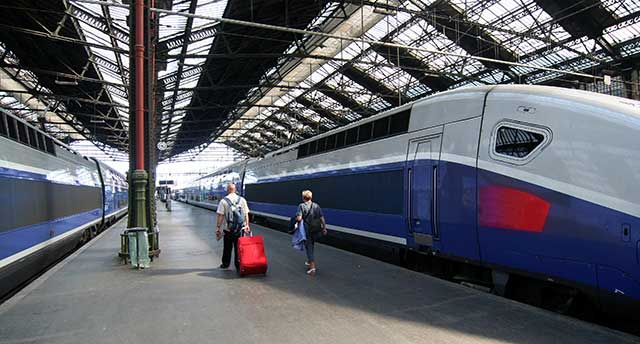
French Train Station in Paris
One of the great perks of living in France is how easy it is to travel—both within the country and across Europe. France is about 14 times smaller than Australia in land area, and its extensive rail network makes getting around convenient, economical, and surprisingly fast. Today, the French rail network spans over 32,000 kilometres of track, connecting major cities, towns, and regions.
A standout feature is the TGV (Train à Grande Vitesse), France’s iconic high-speed train. Launched in the 1980s, the TGV regularly reaches speeds of up to 320 km/h, connecting major French cities in just a few hours. For example, Paris to Lyon takes about 2 hours, and Paris to Marseille is around 3 hours. The TGV also links France to neighbouring countries like Belgium, Germany, Spain, Switzerland, and Italy, making European travel fast and accessible.
Whether commuting for work, visiting family, or exploring the continent, trains in France offer a comfortable and efficient way to get around—much easier than flying for many domestic routes.
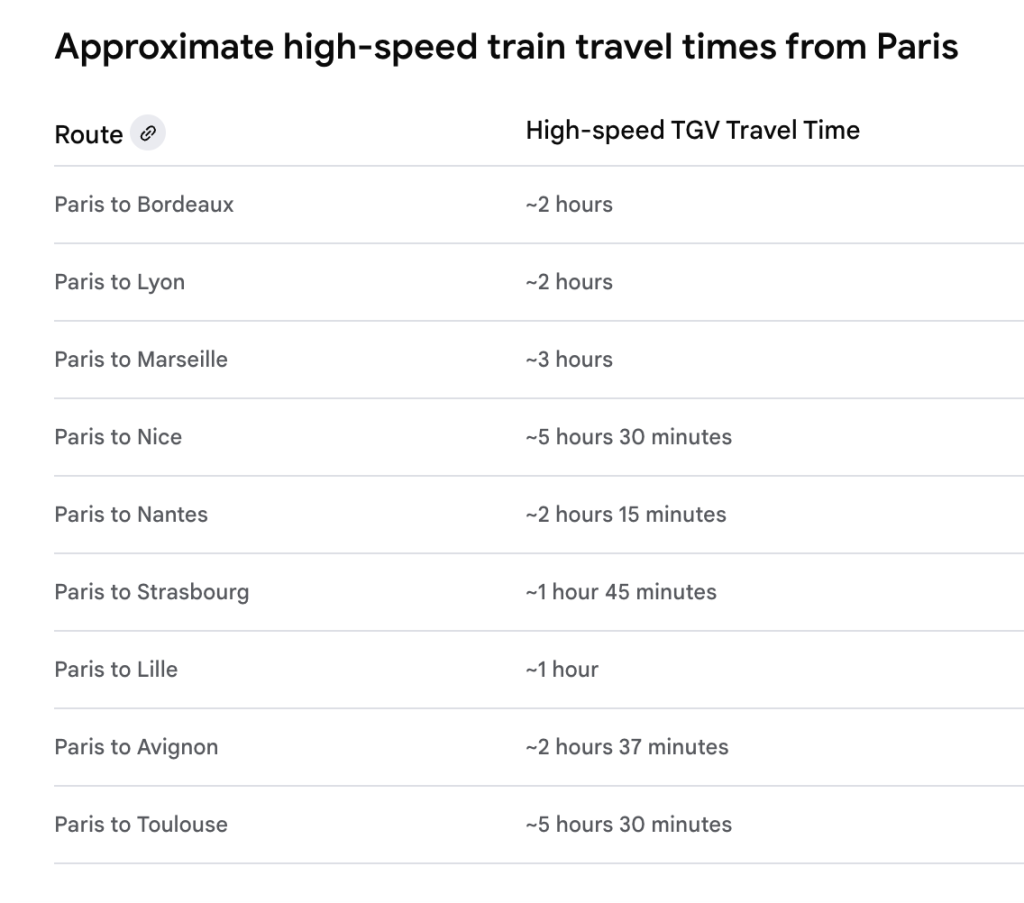
High-speed train travel time in France
If you plan to travel by train in France, booking online is the easiest option. Ticket prices can fluctuate depending on demand, much like airline fares, so reserving in advance usually gives you the best rates.
For long-distance trains like the TGV, you can choose first or second class. First-class seats are wider with more legroom, and some services offer extras such as power outlets and Wi-Fi. Second-class seats are comfortable too, but with slightly less space.
Before boarding, remember to validate your ticket at the station. This is done by punching it in a small machine near the platforms. Failing to do so can result in a fine if you’re checked onboard.
Travelling by train in France is not only efficient—it’s also a comfortable and scenic way to explore the country and beyond.
#3. Don’t Drive as You Drive in Australia
About 35% of the world’s population drives on the left, mostly in countries that were former British colonies. In France—as in Canada—drivers use the right-hand side of the road.
If you’re driving in France for the first time, it might feel strange at first. The driver’s seat and controls are on the opposite side, and the flow of traffic is reversed compared to Australia. Don’t worry—you’ll quickly get used to it.
A couple of important tips before you hit the road:
-
Speed limits: When entering towns or villages, the only sign you may see is the city name. In France, this automatically indicates a 50 km/h limit. On highways, the limit is usually 130 km/h (or 110 km/h in wet conditions).
-
Traffic lights: Unlike in Australia, you must stop at an orange light. Running it can cost you points on your licence and fines—typically around 135 euros.
Driving in France can feel different at first, but understanding the rules and being cautious will make it a smooth experience.
#4. One of the Best Healthcare Systems in the World
France is known for its high-quality and inclusive healthcare system, consistently ranked among the best in the world by the World Health Organisation.
The system is universal, covering everyone regardless of age, income, or employment status. As an expat, you are generally eligible for coverage after three months of residence or work. Even before that period, emergency care is available to everyone, ensuring you won’t be left without help in urgent situations.
By comparison, in Australia, only citizens, permanent residents, and certain visa holders are covered by Medicare. Temporary workers and some visa holders may need private health insurance until they become eligible.
That said, the French system can sometimes involve long waiting times, which may range from a few days for urgent consultations to several weeks for specialist appointments—especially in larger cities like Paris. Planning ahead and registering with local healthcare providers early can help smooth the transition.
#5. Perfect Your French Before Your Move

Perfect Your French Before Your Move
While France is one of the most visited countries in the world, that doesn’t mean everyone speaks English. According to a 2012 Eurobarometer report, only around 39% of the French population can speak English.
In larger cities or tourist areas, you’ll usually find someone who can help in English. But in smaller towns and rural areas, it can be harder to find English speakers.
Knowing the basics of French will make everyday life much easier and help you integrate into the local community. Even a simple attempt at conversation is appreciated and seen as polite. Locals often enjoy hearing an Australian accent, and making the effort to speak French—even imperfectly—can go a long way toward building positive relationships.
#6. They Love Bread and Boulangeries
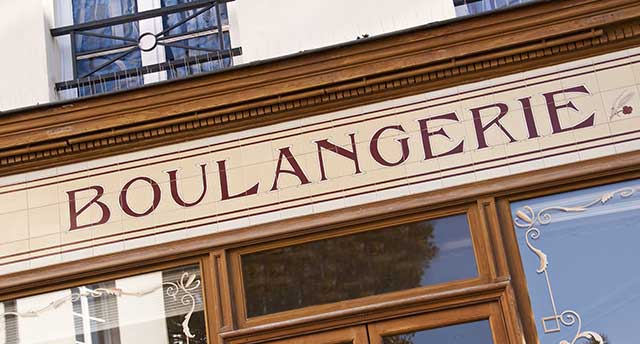
French- Boulangerie Front Store
There are plenty of myths and clichés about the French—like wearing berets or being rude—but one thing is absolutely true: the French love their bread and boulangeries (bakeries).
France has around 35,000 boulangeries, which is roughly one bakery for every 2,000 people. It’s estimated that over 10 billion baguettes are baked in France each year, and according to Le Figaro, 95% of the French eat bread at least once a day.
The classic baguette is, of course, the most famous, but French bakeries offer a huge variety of breads. Ingredients, flour types, baking methods, oven times, and regional traditions all influence the shape, texture, and taste. Whether you’re in Paris, Lyon, or a small village, there’s always a fresh loaf waiting just around the corner.
#7. Become Accustomed to French Food
This is definitely not a myth—food plays a huge role in French life, and they truly enjoy their meals (including all that bread!).
Many meals, especially on weekends or evenings, are multi-course experiences. French people often finish their meals on a sweet note, so don’t be surprised to see yoghurt or a small dessert included regularly.
If you’re new to the French workforce, lunchtime might feel different too. Most companies offer a one-hour lunch break, and it’s common to step out to a café, a park, or a terrace to enjoy your meal. Many restaurants also offer a prix fixe or set lunch menu, which is quick, affordable, and perfect for a midday break.
#8. Work Environment: Holidays and Working Hours
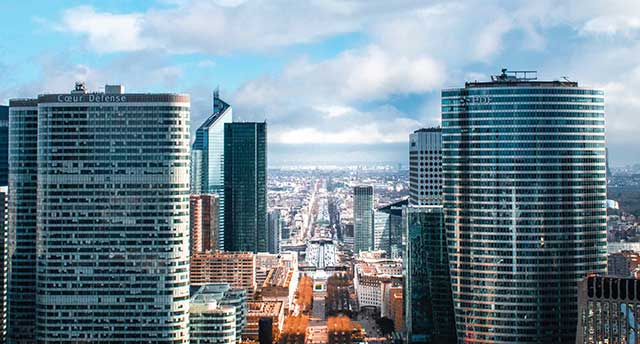
La Defense Business District in Paris
Moving to France for work means adapting to a different workplace culture. French employees enjoy five weeks of paid annual leave, which must be used within the year—so you can’t simply roll them over like in some other countries. On top of that, there are around 11 public holidays each year. Unlike in Australia, if a public holiday falls on a Sunday, it usually stays on that day rather than moving to a Monday.
The standard workweek is 35 hours, though many people work slightly longer, often 39+ hours per week. A typical day runs from 9 a.m. to 6 p.m., sometimes later depending on the company and role.
Another key difference is the workplace hierarchy. French workplaces tend to have a more defined structure, so it’s important to pay attention to whom you’re speaking to in order to communicate respectfully and avoid misunderstandings with colleagues or managers.
#9. How the French Say Hello (Hint: Not Hugs)

French kiss cheeks rather than hugging
This advice will certainly avoid putting yourself in an awkward situation.
In Australia, it’s common to greet family, friends, or close acquaintances with a warm hug. In France, it’s different: greetings are usually done with a cheek kiss, known as faire la bise, rather than a hug. Many foreigners find it a little unusual at first. The number of kisses and who you kiss can depend on the region, your relationship, and whether the person is a friend, colleague, or stranger.
For formal situations, a handshake is appropriate for both men and women. In the workplace, cheek kissing among colleagues is acceptable only if you know them well. With friends, you can faire la bise to both men and women depending on how close you are. Regardless of the situation, hugging is generally not a typical French greeting.
During periods like the COVID-19 pandemic, social distancing rules may temporarily change these customs, so it’s always good to be aware of the current guidelines.
#10. The Myth About French Rudeness
You may have heard that the French can be rude—but is that really true?
In big cities like Paris, interactions can feel more impersonal simply because of the sheer number of people. City life often encourages people to focus on themselves rather than on social niceties. In smaller towns and rural areas, however, people tend to know each other and offer a warmer, more personal vibe.
Politeness, respect, and cultural awareness are key. Even learning a few basic French phrases can make a big difference—locals will appreciate the effort, and it helps you integrate more smoothly. Far from being rude, the French are often thoughtful and courteous once you understand their customs.
#11. Moving to France With Palmers Relocations
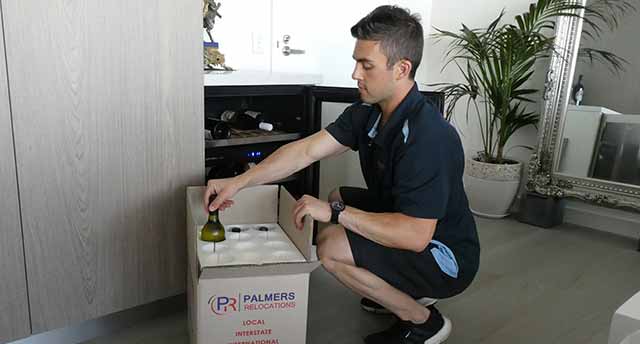
Relocating to a new country is more than just transporting your belongings—it’s about starting a new chapter in your life. Whether you’re chasing a change of scenery, career opportunities, or a lifestyle that embraces culture, cuisine, and the French way of life, the move itself should be the least stressful part of the journey.
That’s where careful planning and professional support make all the difference. At Palmers Relocations, we guide you through every step of your move to France. From shared container options for smaller shipments to full 20- or 40-foot containers for entire households and vehicles, we ensure your possessions arrive safely and on time.
With over four decades of experience helping families and businesses move internationally, we know that a move done right allows you to focus on settling in and enjoying your new life—rather than worrying about logistics, customs, or transport.
If you’re planning a move to France, our team is ready to help. Get in touch today for an obligation-free quote and take the first step toward a smooth, confident relocation.

